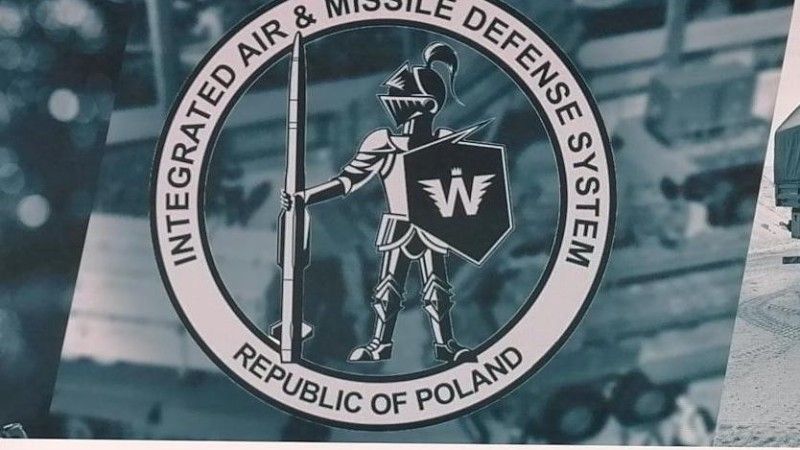- WIADOMOŚCI
MSPO 2022: Wisła Command System Complete Now. Polish Industry Inks a Critical Contract
The Armament Agency signed a contract with a consortium led by the WZE Zielonka S.A. company, on the delivery of command centres for the Polish Wisła medium-range air defence system. The agreement has been concluded during the MSPO 2022 event in Kielce. This is the final agreement in the process of contracting the first stage of the Wisła programme. It shall also be viewed as a major step in the process of establishing expertise within the Polish industry, with that expertise being indispensable in implementing the second stage of the Wisła programme, and the Narew SHORAD programme as well.

The contract covers the development, manufacturing, and delivery of fourteen command stations for the IBCS/Patriot squadron, including six E-OPS (Engagement Operations) centres, six C-OPS (Current Operations) centres, and two F-OPS (Future Operations) centres. The agreement also covers delivery of a lab package, logistics support package, software for management of the reconnaissance center (SAMOC/SMS/PMN 2.0), and integration of all Centres within the IBC network.
- Development and manufacturing of the centres, within the framework of the said agreement, would be a result of work undertaken by the Polish defence industry engineers. The agreement also creates new opportunities for the PGZ Group companies, said Małgorzata Kobylarczyk, President of the Management Board at WZE S.A. in Zielonka. - The implementation of the latest technological solutions, when it comes to joint operations with the IBCS in particular, would be used in other programmes, such as Narew, or phase II of the Wisła programme, added Kobylarczyk.
The command centres would feature elements of the IBCS C2 system procured for Wisła, while the design would ensure interoperability between IBCS, and the national and allied C2 solutions. Elements of the Wisła system will hence have an ability to effectively work both with the US Army elements using IBCS, as well as the Polish units operating national C2 solutions. NATO interoperability would be ensured as well. At the same time, the architecture of the Command Centers would meet the requirements defined by the Polish Armed Forces, in the area of command chain arrangement.
The delivery would be taking place between 2022 and 2025. The agreement value is PLN 505 million (gross). The implementation of that agreement would be assigned to a consortium formed by the PGZ Group companies, led by the WZE facility in Zielonka, also involving the Grudziądz-based WZU facility, and WZE No. 1 plant, located in Zegrze. Northrop Grumman, PIT-RADWAR, Transbit, and Air Force Institute of Technology would be acting as the subcontractors.
The agreement signed in Kielce is the last of the contracts concluded concerning the elements of the first phase of the Wisła programme, delivered by the Polish defence industry. Earlier on, orders had been placed for MCC1 mobile communications nodes, camouflaging systems, Jelcz vehicles, and loading/transport vehicles.
Not only would the implementation of this agreement provide a boost of operational capabilities to the Polish Armed Forces, but it would also establish a brand new set of competencies within the Polish industry, including the know-how on the integration of the IBCS system, and tailoring that system to work with the Polish C2 network, in the Polish context.
This know-how may turn out to be useful in any further effort aimed at the establishment of IADS, including Wisła Phase II, and the PGZ Narew SHORAD programme. One shall add that a request for implementation of the second phase of the Wisła programme has already been submitted to the US government in May this year. That fact was announced by Mariusz Błaszczak, during the Defence24 DAY 2022 conference. The second stage of establishing medium-range air defence capability in Poland would include the procurement of 12 IBCS/Patriot batteries coupled with LTAMDS radars and PAC-3 MSE launchers. License-manufactured SAMs and sensors developed and manufactured in Poland for the Narew system would work with Wisła, based on the IBCS network capability. Both systems would utilize the Polish early warning radars - P-18PL (active), and SPL/PET-PCL (passive). These have been developed in Poland, within the framework of programmes pursued by the National Centre for Research and Development.















